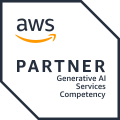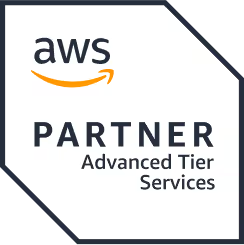Diverse Blockchain Use Cases Across Non Finance Industries
TL'DR
Recently, Bitcoin reached an alarmingly high price of $37,000. This was followed by a steep reduction in the price of the coin finally stabilizing. Due to this increased visibility of bitcoin, blockchain technology has gained a lot of attention. Along with the obvious financial applications of this technology which has gained widespread popularity amongst the fintech startups, there are a lot of non-financial applications as well. This blog article refers to some of the non-fintech applications of blockchain.
16 Blockchain Applications and Use Cases
Blockchain has gained widespread popularity thanks to its decentralized framework, immutable nature and the security and authenticity that it offers. With these benefits offered by Blockchain, there are widespread use cases that Blockchain can be applied to. Some of these are mentioned below:
Content distribution applications such as DECENT use the underlying concept of Blockchain. Such applications reward content providers by creating a smart contract when article is published by an author. The author decides the price of the content and keeps complete control over the content, while publishing a part of the article for free and adding metadata to it. The application will encrypt the content, find publishers (independent computers required to keep the DECENT network online and reward them for hosting service). When consumers find the article they are interested in, they can purchase it by paying the fee specified by the author. These applications can be used for publishing video or audio files, texts, pictures or softwares .Some other examples of such decentralized social networks are Diaspora (decentralized social networking platform), Synereo (allows free and fair attention economy allowing platform agnostic monetization of original content), Akasha (allows you to share and vote for entries such as in medium being rewarded in turn for good content) etc.
Applications like Everledger provide a ledger for maintaining every detail on diamond verification and transactions. Once a diamond is stored on the ledger, it cannot be tampered with and becomes harder to counterfeit. Currently, it has more than 980,000 diamonds onloaded onto the blockchain.
WIth identity theft and security being of utmost importance in today’s web age, platforms like CIVIC allow users to protect and authorize their identity in real time, offering additional features such as credit report alerting, identity fraud coverage, and access to 24/7 fraud support. Hence, when someone is trying to open an account using your identity, CIVIC will send you an alert. Other applications such as UniqueID Wallet provide secure identity management, integrated with fingerprint and other biometry on personal devices. Such device-centric solutions remove the risk of user generated passwords and instead recognize users through the personal connected objects.
Imagine the most joyous day such as the birth of your baby or the bereavement after the loss of someone close to you being closely followed by a paraphernalia of government paperwork. Companies like Khanections LLC are working on easing this slow churn of bureaucracy by building a browser based paperless birth and death certificate registry with blockchain based smart certificates. The browser based API allows secure registration and retrieval of birth and death certificates using an encrypted key and internet connections, thus creating a national platform for linking births and deaths with identity of users.
Applications like Chainalysis make automatic connections between digital identities in turn allowing financial institutions to develop trust between them and identify any actor who could be expected to participate in a fraudulent activity. It also acts as a tool for ensuring regulatory compliance through real time analysis of blockchain. Companies like Third Key Solutions provide consulting and cryptographic management of keys so that users do not lose access to their cryptocurrencies and assets. They also work with organizations to design an auditable and process based key management system that allows disaster recovery in turn allowing users to manage their keys and assets. Some other applications in this domain are Tradle (using blockchain to record transactions while maintaining a KYC network to bridge both interbank and external networks), Elleptic (secures insurance for blockchain asset), and Vogogo (automates payment processing, performs regulatory compliance and risk management for businesses).
Applications like Factom use blockchain based ledgers in database management and data analytics and can be, in turn, used in various applications.
Peernova, utilizing Distributed Ledger Technology, has provided many solutions to financial applications to solve their specific audit challenges. Some of the applications of their technology provide advantages such as resilience of data by duplicating data in case of data failure, building data integrity checks and cryptographic linkages that can ensure that the data has not been tampered with, etc. It allows financial institutions to meet their compliance challenges. Guardtime has launched another cryptocurrency based asset management solution, called SILO, for financial institutions with security features such as post quantum signatures that replace RSA, anti tamper hardware and a calculus to track and trace digital information as it crosses organizations. Its products have been used to mitigate cyberattack.
Follow my Vote provides an online and secure voting system using blockchain based system to ensure that election results are honest and accurate. The voters have the ability to independently audit the ballot box. NASDAQ and Republic of Estonia have decided to use Estonia’s e-residency platform to allow stock holders of companies listed in Nasdaq’s Tallinn Stock Exchange to cast electronic votes during shareholder’s meeting. Estonia’s e-residency program is currently used by interested residents of the country to access government services through e-residency digital authentication.
The domain of gaming and gambling have not been left untouched by the tentacles of Blockchain as well. Some applications like Etheria provide a virtual world in which players can own tiles, farm them for blocks, and build things. The world as well as each action taken by individual player is maintained in the blockchain. FirstBlood is another blockchain based Sports platform that allows players to challenge each other to matches and win rewards. Freemyvunk is a platform that allows gamers to trade their VUNK (virtual junk) in a fair and trustless way through a secondary market. The currency for purchasing game products can be stored in user’s game wallet.
The Dubai Land Department (DLD) is currently working on a system that allows registration of all land as well as lease transactions and links them with Dubai Electricity and Water Authority (DEWA) and all other forms of property related bills. The application is expected to go live by 2020 and is expected to allow all investors across Dubai and the world to verify property data based on timestamped records.
Companies like Coinality allows interested applicants to apply for opportunities that pay in digital currencies such as bitcoin, Litecoin and Dogecoin, etc. Jobs could range from full time to one time or part time and are handled independently between the related parties. The job site does not handle any risks between biparty negotiations.Some other such applications include Satoshi Talent (a blockchain based recruiting firm), and Appii (uses distributed ledger technology to securely store and verify details of education, accreditations, history of employment, and awards as well as recognitions).
Some applications like Ethereum offer public blockchain platform with programmable transaction functionality. It can be used to execute peer to peer contracts using a crypto asset called Ether. Ethereum can be used to codify, decentralize, secure and trade things like voting, domain names, financial exchanges, crowdfunding, company governance, etc. A number of projects are being currently developed on top of Ethereum. Another example of such a platform is Chromaway.
Provenance allows retailers and producers to open product data, track the journey of goods, and empower customers with access to knowledge. It allows producers to substantiate their claims with data gathered from across the supply chain and allows them to create a digital passport for every product linked to a batch or individual item.
UBITQUITY provides a blockchain based system for securely recording, tracking and transferring deeds. Silvertown is another application that helps housing associations and large property managers monitor the vital signs of their property using smart home technologies. The project uses smart beacons to send signals about a home to all the relevant parties. It ensures the integrity of data when the data is transferred to the owner of the property.
Applications like DatabrokerDAO act as a marketplace for selling and buying sensor data. All the data gathered from the sensors within homes do not have to be wasted allowing owners to turn generated data into revenue streams. This data can be used by a variety of industries to optimize and monitor their operations. The purchase and sale of data is done using digital currency. Chronicled assigns an identity to products by applying “Smart tags” and “Smart labels”. These smart tags contain microchips that link the objects to their digital records. Chimera is another such tool that makes real time use of the data supplied to perform analytics on it using edge node. It is a device that links home network to the cloud and other electrical devices allowing it to send data that can be analyzed real time.
Platforms like Openchain allow organizations to create an openchain instance that allows them to issue and manage digital assets in a robust and scalable way. The administrator can define the rules of the ledger. However, the system does not allow any mining. Instead the system and transactions are validated by an administrator and hence are built on a client server architecture instead of a peer to peer infrastructure. Ciphrex has created the mSigna wallet which allows multi-signature security. It provides users complete control over their bitcoins, allowing them to easily synchronize their account across many devices, setup joint accounts with other people in organizations, perform escrow, and use multi-factor authority. BigChainDB provides a queryable database to developers which is built using blockchain characteristics such as decentralization , immutability and ability to treat all database elements as assets. This platform can be used as a base for building multiple use cases such as for securing intellectual property (such as your music), control and secure your identity, etc. Some of the other platforms in this domain are Avalanchain, Applied Blockchain, Blockchain Foundry, etc.
Conclusion:
The applications of blockchain and possible use cases are endless. With a multitude of projects being worked on currently, the possibilities are endless. We could go on listing a number of exciting use cases with blockchain driving itself to the core of our very existence. We might be living and operating on the brink of a change as big as Web 3.0 after all. These times are definitely exciting and full of potential.
























